Dr. Barry L. Eppley, Indianapolis Double Board Certified Plastic Surgeon
/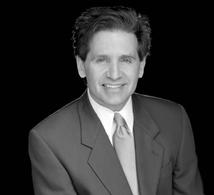
Dr. Eppley is both a licensed physician and dentist. He's board certified in Plastic and Reconstructive Surgery as well as Oral and Maxillofacial Surgery.
Name: Barry L. Eppley, M.D., D.M.D.
Clinic: Eppley Plastic Surgery
Medical Spa: Ology Spa
Location: Carmel, IN
Website: eppleyplasticsurgery.com, ologyspa.com
That's interesting: Dr. Eppley has prominent international experience in the investigation and development of numerous technologic advances in plastic surgery. He has an extensive history of research experience and in various aspects of bone and soft tissue healing. He has been the recipient of numerous National Institute of Health and private corporate research grants for the evaluation of promising surgical technologies. As a result, he has been awarded ten U.S. and international patents on biomedical technologies. His research and clinical efforts have resulted in a large number of contributions to the surgical literature with over 250 journal articles and 35 book chapters. He has co-authored a large textbook entitled'MaxillofaciaTrauma and Esthetic Reconstruction' which deals with the management of facial injuries and their primary and secondary reconstruction as well as a handbook entitled 'Essentials of Maxillofacial Surgery'.
Dr. Barry Eppley co-founded OLOGY, a state-of-the-art medical spa that combines Eastern ayurvedic treatments with Western medicine in an intimate and luxurious environment. At OLOGY, patients undergo the latest non-surgical cosmetic treatments with natural healing methods and state-of-the-art technologies.
How (and why) did you transition from Oral and Maxillofacial Surgery into cosmetic medicine?
Like many things in life, you go as far as you can see and when you get there...you can always see further. My training and surgical experience is truly reflective of that perspective. I have always been a student and am still ‘going to class‘ everyday. My educational journey has just led me to a broad-based plastic surgery practice with multiple locations and spa facilities.
How is your practice organized? What types of medical technologies do you have and how did you select them?
My private plastic surgery practice is based out of hospital-based medical spa locations with over twenty employees including aestheticians and massage therapists. When I look for at new medical technologies I must view them not only for what I can do with them but what my staff can use as well. This makes the use of numerous non-surgical therapies and devices appealing, particularly in regards to facial rejuvenation and body contouring/fat reduction. It also makes me think about how to integrate before and after therapies for my surgery patients and what gateway treatments may be of interest to those not initally looking for a surgical solution to their aesthetic concerns.
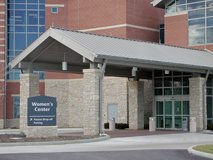
You're using SmartLipo technology. What do you think of SmartLipo's efficacy?
It is important to recognize that Smartlipo, like any technology, is a tool and has no magical properties. It is only as good as the skill and experience of the physician holding it. When used properly and judiciously, my experience has been that it can lead to better outcomes and less bruising. One of Smartlipo's biggest claims to fame has not been particularly useful for me...being able to do most of the procedures under local anesthesia. But this may be reflective that many of my patients are looking for treatment of multiple body areas with bigger volume reductions and it is often combined with other procedures which need to be done under general anesthesia anyways. Its biggest disadvantage is that it is a very costly device and requires extra time to pre-treat the areas before suction evacuation. Thus it requires a motivated user and one who believes that the cost and extra time to do it are worth it to their practice.
How do you evaluate and make your technology comparisons and decisions based on efficacy and cost?
I view technologies and devices as either comparative or innovative. This means does it offer similar treatments as other technologies or devices on the market (with some claimed minor advantage) or is it the only one that can produce its aethetic effects. Most cosmetic technologies are comparative and thus must be judged primarily from a business perspective on its return on investment. Every technology costs a lot more than the price tag when you factor in labor, disposables (if they exist) and marketing. One must look very carefully at the cosmetic market and have realistic projections about what it can really generate. Very few technologies fall in line with ‘buy it and they will come’. Most sales are driven and do not magically fall off the street and through the door. This understanding allows me to apply a basic capital purchase philosophy... if it can not generate in gross sales what it cost to buy in one year or less, it is not a good business decision.
Innovative technologies, uncommon as they are, are different. Because they have less competition and offer something new, being an early adopter is less of a business risk. When the market cap is undefined, it is sometimes easier to take the risk.
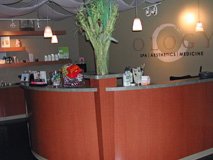
You have been awarded ten U.S. and international patents on biomedical technologies. Can you tell us more? How have you pursued this? What is the process?
I spent much of my surgical career in a major academic university system. Often dealing with complex plastic surgery problems and surrounded by a wide variety of research facilities and minds, it was a natural environment to investigate the science of these problems and look for improvements. Along the way you make observations and discoveries, usually when not specifically looking for them, that can lead to innovative technologies. This is well known to many curious minds. Getting inventions patented and then turned into commercial products, however, requires a different skill set and is as much due to persistence and salesmanship than the more intellectial scientific discovery process.
A large number of physicians who are not plastic surgeons or dermatologists have moved into cosmetic medicine by focusing on nonsurgical cosmetic technologies like IPL and injectables. As a plastic surgeon, what do you think about this?
This is an understandable sticky issue for many board-certified plastic surgeons and there is an underlying question of training and qualifications. These are debates, quite frankly, that I do not engage in or find productive in doing so. While plastic surgeons are the most supremely trained of all those in the world of cosmetic medicine, no physician or speciality has cornered the market on aesthetic knowledge or skill. I find it challenging enough to be the best that I can be for my patients and that is where I prefer to focus my energies. As an old-time mentor once told me (in very abrupt language) ‘if you think you are so good at what you do...stop worrying about anyone else and just go out and prove it!
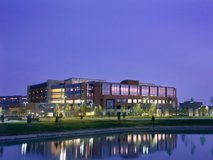
On a completely practical basis, the more practitioners that jump into cosmetic medicine ultimately increases the level of business in most plastic surgery practices. While on one level there is competition, there is also increased public awareness of cosmetic procedures, the need to satisfy unhappy patients treated elsewhere and a certain segment of patients who are seeking the ‘best’ amongst the mileau of cosmetic providers. In essence, this gives plastic surgeons the ability to separate themselves from the pack...a phenomenon that would not exist if there was no pack.
Are there any treatments or technologies that you're especially excited about that haven't hit the market yet? What do you think about new therapies (like stem cells or others) that are being developed outside the US?
While stem cells have caught much imagination and have a lot of promise, it is clear that the marketing has gotten way ahead of the science. After years of cosmetic promotion, the inevitable oversight of the FDA has stepped in and banned stem cell harvest and storage and so-called stem cell therapies unless they are part of a sanctioned FDA-sponsored clinical trial. This will curtail much of cosmetic stem cell promotions and any physician promoting it would be wise to stop. Having the FDA after you is the equivalent of the IRS.
Do stem cells have a real valid role in rejuvenation and cosmetic medicine?
In theory it seems like it would but there is little scientific and scant clinical evidence to date that they do. It is simply too early to tell right now. For me, stem cells today are much like growth factors were 20 years ago. There was mucn promise and excitement about growth factors but the long-term results of those efforts have created very few clinical products other than autologous platelet-rich plasma preparations.
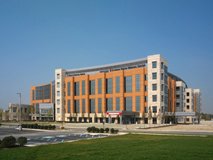
Where do you see the most competition from other physicians in your area? How do you run your business in order to compete with them?
All city and suburban areas have lots of plastic surgeons and cosmetic providers as well as various types of spa facilities. I have no concerns about competition either as as plastic surgeon or a medical spa owner. Competition is an important part of life and it makes everyone better, most of the time, as a result of it. It keeps you always striving to improve.
What's the best advice you've ever received as a physician?
Onke of the greatest pieces of plastic surgery wisdom that I have heard and one in which I employ every day is...
‘A good aesthetic result that has no complications is always better than a perfect result that develops them’
Which translates into my version of it ...’Patients do not usually know the difference between a good and a perfect result, but they will recognize a complication 100% of the time.’
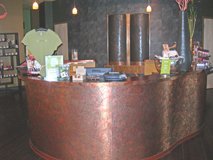
About: Obtained medical degree from Washington Univerity in St. Louis and dental degree from University of Pennsylvania in Philadelphia. Completed residencies in Plastic Surgery and Oral and Maxillofacial Surgery with additional fellowship training in Head and Neck Surgery, Cleft and Craniofacial Surgery and Pediatric Plastic Surgery. Double board-certified in Plastic and Reconstructive Surgery and Oral and Maxillofacial Surgery.
This interview is part of a series of interviews of physicians running medical spas, laser clinics and cosmetic surgery centers. If you'd like to be interviewed, just contact us.





